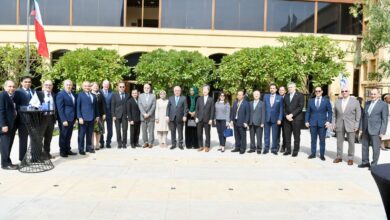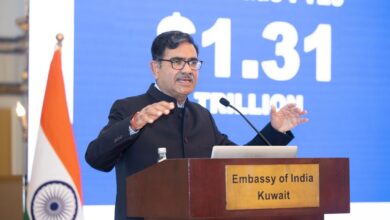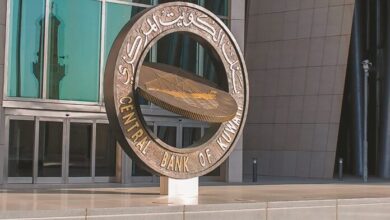Kuwait’s mosques go green with ambitious plan unveiled by ministry
The Ministry of Awqaf and Islamic Affairs focuses on using vegetation around mosques to improve air quality, reduce heat, and cut energy and water consumption, preserving resources for future generations.

• Dr. Mohammed Al-Wusami, the Minister of Awqaf and Islamic Affairs, emphasized that mosques hold a revered status in Islam as houses of God and centers of worship, playing a pivotal role in the lives of Muslims by fostering worship and guiding individuals toward righteous behavior.
Dr. Mohammed Al-Wusami, the Minister of Awqaf and Islamic Affairs, announced an ambitious plan by the ministry to transform all mosques in the country into sustainable and eco-friendly buildings. This initiative focuses on adhering to environmental and engineering standards, reducing energy and water consumption, and improving air quality. The goal is to enhance the worship experience while preserving natural resources for future generations, according to Al Anba newspaper.
The minister confirmed to the newspaper that he issued Decision No. 102 of 2024, later amended by Decisions 130 and 147 of 2024, to form a ministerial committee to study sustainable mosques. The committee includes a team of scientists specializing in construction, architecture, sustainability, and the environment, chaired by architect Bashar Abdul Hamid Al-Salem.
He explained that the committee has commenced its work and reached out to relevant state authorities to align its efforts with the latest developments. Members of the committee have also presented numerous recent scientific studies to support the completion of their assigned tasks.
Dr. Al-Wusami emphasized that the committee has submitted its report, highlighting the initiative’s potential to enhance worship performance in mosques and create a more comfortable and healthier environment for worshippers. This includes the use of vegetation around mosques to improve air quality and mitigate heat effects, making mosques a model of sustainability.
The report also addressed the issue of excessive energy consumption and the resulting waste, which can be mitigated through innovative solutions and stringent measures in energy efficiency and resource management. Dr. Al-Wusami stressed that the report underscored these requirements as mandatory, not optional, to ensure true sustainability.
He emphasized that mosques hold a revered status in Islam as houses of God and centers of worship, playing a pivotal role in the lives of Muslims by fostering worship and guiding individuals toward righteous behavior.
He stated that caring for God’s houses also includes responsibly managing resources, such as energy, and avoiding extravagance, which Islam prohibits. He highlighted that the principle of moderation extends to all areas of life, including the use of water and energy, as evidenced by the Quranic verse: “Indeed, the wasteful are brothers of the devils” (Al-Israa: 27). This underscores that wastefulness and extravagance are unacceptable in Islamic law.
Application of rationalization systems
The Minister of Awqaf explained that resource and energy rationalization in mosques aligns with the spirit of moderation advocated by Islam. He added, “Excessive use of electricity and water in mosques, or operating systems unnecessarily, constitutes a form of extravagance that contradicts Islamic principles of economy and moderation.”
He noted the importance of implementing energy rationalization systems in mosques, not just from an economic or environmental perspective but also from a religious and moral standpoint. This ensures that the blessings God has bestowed upon us are utilized sustainably and responsibly, contributing to a more sustainable energy future for Kuwait.
He further pointed out that energy waste in Kuwait’s state-owned mosques, managed by the Ministry of Awqafand Islamic Affairs, is a significant challenge. This is particularly evident in the extensive use of air conditioning and lighting, even during times when mosques are not occupied or outside prayer times.
Dr. Al-Wusami explained that common causes of waste include leaving systems running for extended periods without need or relying on outdated systems that consume energy inefficiently.
1,700 mosques
The Minister of Awqaf stated that the number of mosques managed by the ministry exceeds 1,700. According to the report, the mosque sector accounts for a significant portion of nationwide energy consumption, including air conditioning, lighting, and water use. This is largely because mosques remain open throughout the year, leading to higher energy demands.
He concluded by saying, “Since the ministry’s mission includes promoting Islamic values, avoiding waste in energy use is one of our highest priorities, especially given the energy challenges Kuwait is currently facing.”
Criteria for constructing new mosques
The committee has worked to establish precise standards to ensure a healthy and sustainable environment for worship while upholding religious and cultural values. It also developed several engineering and architectural design considerations for constructing new mosques to promote the rational use of energy and water.
One of these measures requires designing a lobby or partition for any space with direct access to an exterior door. This design minimizes heat loss and ensures effective control of the internal environment.
Additionally, the lobby or partition must incorporate thermal insulation to prevent heat or cold from leaking in or out, thereby improving energy efficiency.












